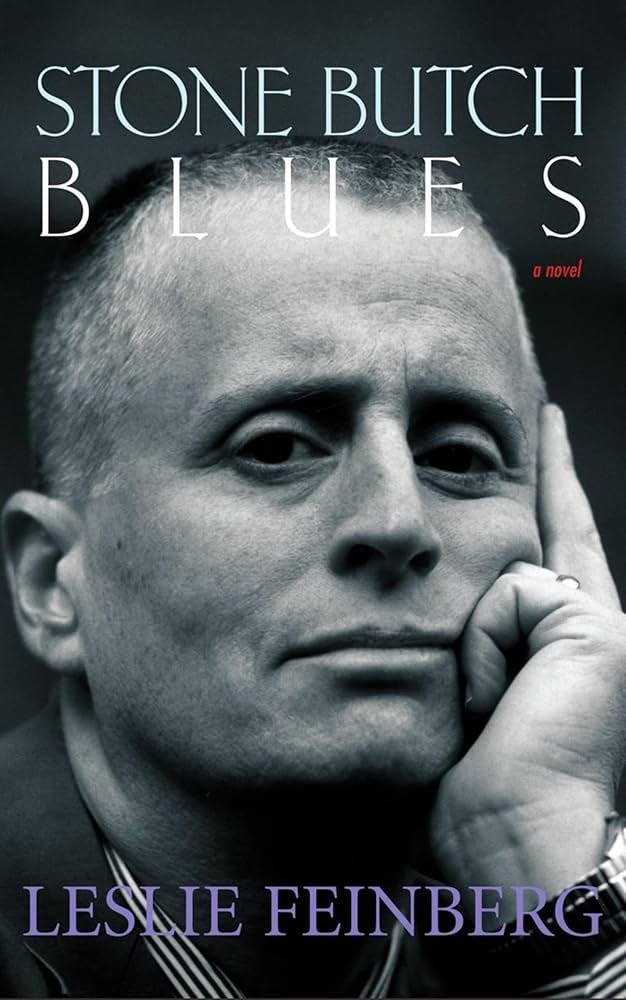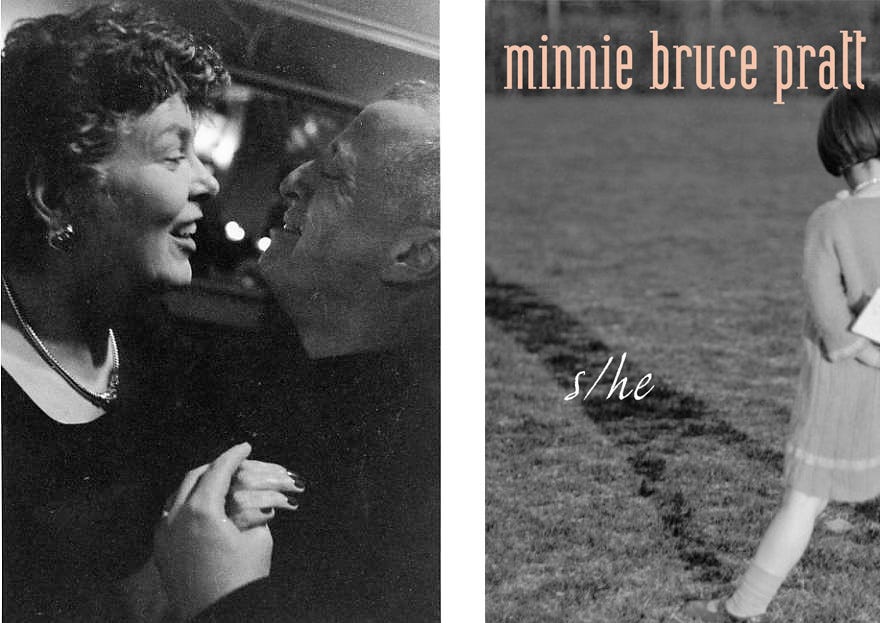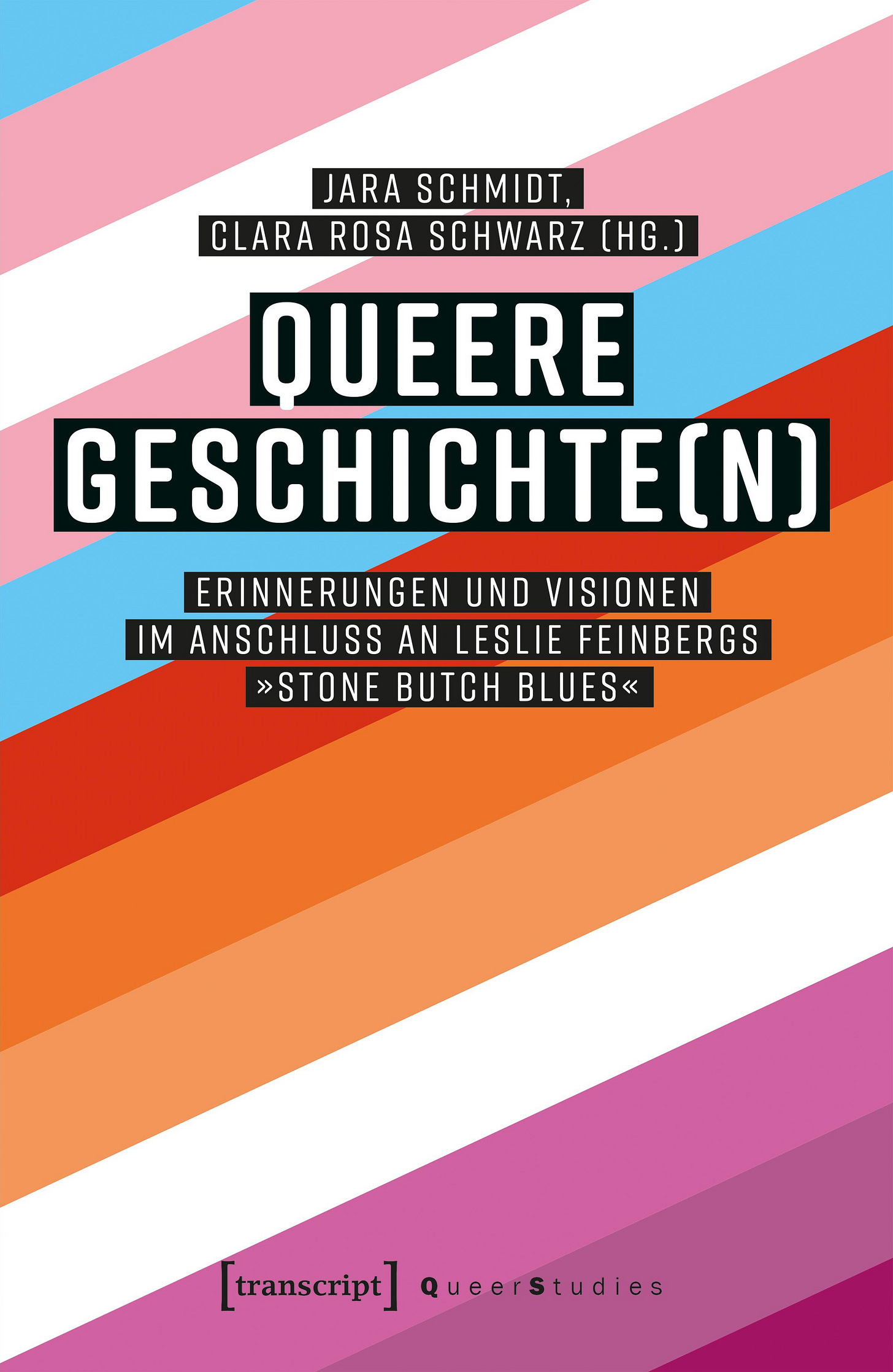Have you heard of Stone Butch Blues? I published a book about it
On the importance of intergenerational communities and trans and queer storytelling
Stone Butch Blues is revolutionary communist butch Leslie Feinberg’s (1949-2014) first novel, published in 1993. The novel tells the story of Jess, a butch teenager in Buffalo of the 1950s and 1960s. Jess grows up at the heart of femme/butch working class bar culture and becomes a union activist, which is where the story culminates in the 1990s. Along the way, Jess transitions and then stops transitioning, makes friends and lovers, experiences the most horrific violence by cops and civilians alike, loses her community and finds it again. Butches and femmes (including trans butches and femmes) and their lives, their friendships and political ambitions make up the story. We meet Al, an older butch who helps Jess protect herself from the police, and Justine, a drag queen who buys Jess her first suit. And of course, Jess has a great love story that made my heart ache.
It’s one of my favourite books ever and I’ve always viewed it as more than fiction. Jess has so much in common with Leslie that the novel has been received as somewhat autofictional, before autofiction was really a thing. To me, Stone Butch Blues is a historical document that traces community history (especially working-class Butch/Femme cultures) but stays critical of glorifying the past. It centres intergenerational knowledge, so important for queer and trans communities always, and shows us the dark side of community, too: Feinberg doesn’t shy away from the exclusions, the racism and transphobia, the misogyny that have been and continue to be part of queer communities.
Stone Butch Blues has been truly revolutionary, it changed how trans stories were told (from being treated like medical mysteries to trans people representing themselves and telling their own varied stories). The novel means so much to uncountable femmes, butches, trans people, dykes, and queers the world over. You can download Stone Butch Blues for free on the author’s website.

In 2023, Stone Butch Blues turned 30, so naturally, I co-organised a conference to celebrate it. 30 years later, Stone Butch Blues is as relevant as ever: trans and queer people continue to be marginalised, and our stories and histories remain crucial. Not only do they offer hope and strength, but they also remind us of successful political strategies of the past and inspire us to think of new ways for resistance.
From this conference now follows an anthology. Queere Geschichte(n)—or Queer Histories and Stories. The title is in German, but don’t let that repel you: the publisher refused to let us use an English title, because 5 out of 20 of the contributions are in German. Anyway, this volume is out now, and I’d like to introduce it to you all. A healthy mix of academic and creative writing, personal essays, poetry and art makes up the almost 300 pages of this volume, analysing and responding to Stone Butch Blues, tracing its history and mapping its future. Contributions come from all over the world, while most are from Germany, there are also writers from Canada, Austria, Ireland, Sweden, and India. And most importantly, in Leslie Feinberg’s spirit, the book is completely free to download here (thanks to open access funding from the Universities of Freiburg and Hamburg). Or you can buy a copy here, if you prefer physical reading.
The book features two excerpts from lyrical vignettes by Leslie’s partner Minnie Bruce Pratt, who unfortunately passed shortly after the conference. You can watch her reading at the conference here (with a cameo from me at the end lol). To have Minnie Bruce be part of our conference, to be able to chat with her on Zoom privately and to be able to hear her read, was one of the great privileges of my life. As queers, and leftists, we owe their generation so much. Without them, there would have been no AIDS activism, no HIV medications, no hate-crime legislation. And to see how this femme, at 75 years, was still as revolutionary as ever, was not just inspiring, it was instructive. We reshuffled stuff at the conference, because she kept asking us to do better, and her voice will stay in my head, hopefully for ever.
A short quote I’d like to share also captures perfectly how openly she thought about gender, an openness I feel much contemporary popular discourse around gender could take note of.
Then, femme to femme, he begins to talk of your beauty: “He is perfect. If I ever wanted a woman it would be someone just like her.” With innuendo and arch look he gives truthful ambiguity to what he sees in me, in you, something not simply about ‘gay rights.’ The queen whispers in my ear with his sharp steaming breath, “Don’t let her get away. Hang on to him.”
– from Husband, by Minnie Bruce Pratt

Our book is split in three parts: After an introduction by the editors (myself and my colleague and friend Jara Schmidt, with both an English and a German version) and Minnie Bruce’s excerpts, we begin with Part 1: Femme/Butch Dynamics and Identities, which includes two artistic pieces and five academic essays, including one written by me, titled Feinberg’s Femmes. The contributions in Part 1 look to how femme/butch dynamics have changed over the years, how femmes and butches are gendered in their own right, and how desire and care are negotiated in their relationships.
This is followed by Part 2: Translations and Transfers, again, a mix of personal essay, a letter to Leslie Feinberg, and academic texts, which look to how Stone Butch Blues has been re_translated and how it was received in different geographical and temporal contexts. This includes reflections on the translation processes from English to German and Swedish, respectively, and the reception of the first French translation, how gender works in these languages, and how translation is contextual and political, too.
And finally Part 3: (Future) Spaces (Online and Offline), which begins with a painting and a short artists statement and then looks to queer spaces and spatial experiences in Stone Butch Blues, through several academic texts and a lyrical piece on femme/butch desire. These chapters discuss how digital space can foster solidarity, how bars used to be spaces for working class community, and how trans and lesbian experiences intersect in Stone Butch Blues. I love how the contributions often interweave academic, personal, and artistic writing, following and expanding a feminist and queer tradition of writing, and offering new perspectives towards a trans, lesbian, and queer solidarities.
I love every single one of these texts, all their creative forms, all the personal feelings that make up these pages. I invite you to read them all, with care, and to share your own stories about Stone Butch Blues (with me and with each other). We all have them, and if you don’t yet, read Stone Butch Blues and you’ll very likely be enamoured.
There will be a hybrid book launch event in Hamburg and on Zoom at 6pm CEST on May 6th, for the Zoom link register here.
We spent the past two years working tirelessly on this volume and I would appreciate it so, so much if you download/buy and read the book and share it widely. You can also share this post or share the post for our launch event on Instagram.
I hope you enjoy Queere Geschichte(n) <3
Thanks for reading, see you next time!






We're reading Stone Butch Blues next month in our book club, so this is great to share on to everyone coming/not able to make it!
I write masc/masc novels, and you might enjoy my substack, “Writing in Work Gloves”: